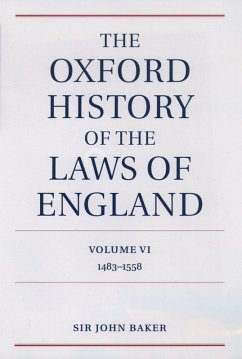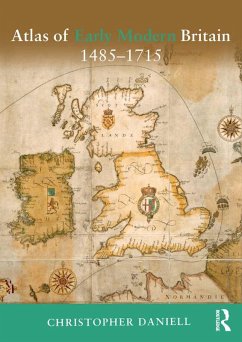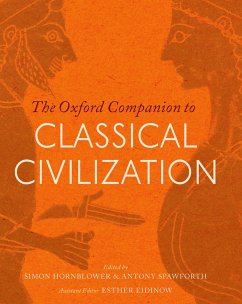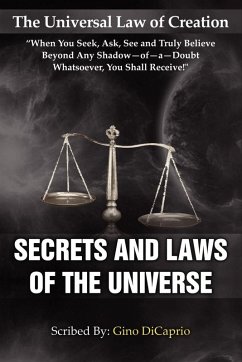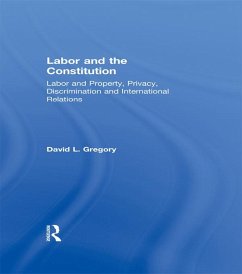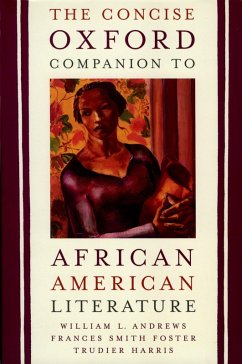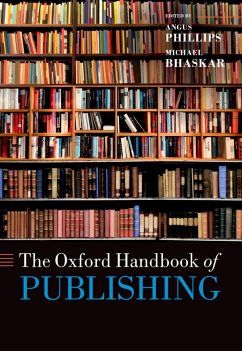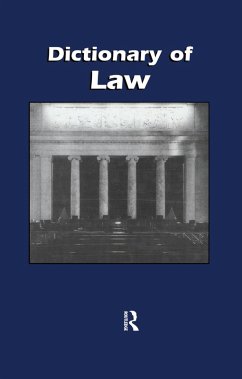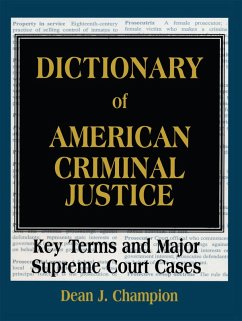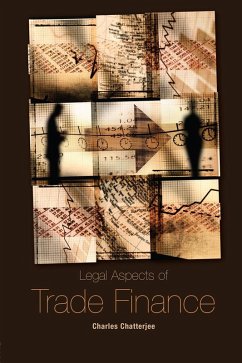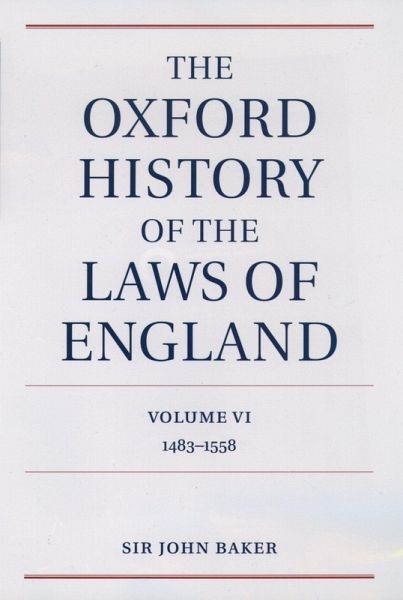
The Oxford History of the Laws of England Volume VI (eBook, PDF)
1483-1558
Versandkostenfrei!
Sofort per Download lieferbar
196,95 €
inkl. MwSt.
Weitere Ausgaben:

PAYBACK Punkte
98 °P sammeln!
This volume covers the years 1483-1558, a period of immense social, political, and intellectual changes, which profoundly affected the law and its workings. It first considers constitutional developments, and addresses the question of whether there was a rule of law under king Henry VIII. In a period of supposed despotism, and enhanced parliamentary power, protection of liberty was increasing and habeas corpus was emerging. The volume considers the extent to which the law was affected by the intellectual changes of the Renaissance, and how far the English experience differed from that of the C...
This volume covers the years 1483-1558, a period of immense social, political, and intellectual changes, which profoundly affected the law and its workings. It first considers constitutional developments, and addresses the question of whether there was a rule of law under king Henry VIII. In a period of supposed despotism, and enhanced parliamentary power, protection of liberty was increasing and habeas corpus was emerging. The volume considers the extent to which the law was affected by the intellectual changes of the Renaissance, and how far the English experience differed from that of the Continent. It includes a study of the myriad jurisdictions in Tudor England and their workings; and examines important procedural changes in the central courts, which represent a revolution in the way that cases were presented and decided. The legal profession, its education, its functions, and its literature are examined, and the impact of printing upon legal learning and the role of case-law in comparison with law-school doctrine are addressed. The volume then considers the law itself. Criminal law was becoming more focused during this period as a result of doctrinal exposition in the inns of court and occasional reports of trials. After major conflicts with the Church, major adjustments were made to the benefit of clergy, and the privilege of sanctuary was all but abolished. The volume examines the law of persons in detail, addressing the impact of the abolition of monastic status, the virtual disappearance of villeinage, developments in the law of corporations, and some remarkable statements about the equality of women. The history of private law during this period is dominated by real property and particularly the Statutes of Uses and Wills (designed to protect the king's feudal income against the consequences of trusts) which are given a new interpretation. Leaseholders and copyholders came to be treated as full landowners with rights assimilated to those of freeholders. The land law of the time was highly sophisticated, and becoming more so, but it was only during this period that the beginnings of a law of chattels became discernible. There were also significant changes in the law of contract and tort, not least in the development of a satisfactory remedy for recovering debts.
Dieser Download kann aus rechtlichen Gründen nur mit Rechnungsadresse in A, B, BG, CY, CZ, D, DK, EW, E, FIN, F, GR, HR, H, IRL, I, LT, L, LR, M, NL, PL, P, R, S, SLO, SK ausgeliefert werden.




